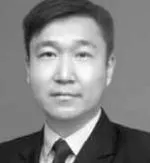- within Compliance topic(s)
On 27th June 2022, the China State Administration for Market Regulation ("SAMR") published the Regulation on Prohibition for Abuse of Intellectual Property Rights to Exclude or Restrict Competition (Draft for Comment) ("Regulation"), which is now open to the public for comments. The Regulation reflects the latest approach of the China authorities to the relationship between competition law and intellectual property enforcement, which has been a topic of concern for a long time, and includes clarification on scenarios that will be deemed abuses of market dominance in relation to SEP licensing.
The Regulation consists of 28 clauses in total. Based on the newly revised Chinese Anti-monopoly Law (AML), the Regulation refines and clarifies matters related to abuse of intellectual property rights to exclude or restrict competition, and aims at providing more fair, transparent, and predictable guidelines for further coordinating intellectual property protection and anti-monopoly work in China.
Key takeaways from the draft of the Regulation
The Regulation specifies in clause 5 that business operators shall not reach monopoly agreements via the use of intellectual property rights. This is particularly important for multi-national companies in, for example, entering into joint development agreements in China, as there are sometimes clauses which attempt to exclude potential competitive activity on IP rights. It is suggested that more efforts be taken to the review of intellectual property clauses from a competition law perspective before signing joint development agreements in China.
The Regulation explicitly prohibits operators with market dominance from refusing to license other operators if their intellectual properties have constituted "essential facilities". This is a reflection of the Hitachi Metals case, in which the Ningbo Intermediate People's Court found that Hitachi Metals Co. violated China's AML by refusing to license its patents related to the production of rare earth magnets to Chinese manufacturers. In doing so the court held that the Hitachi patents constituted "essential facilities", without the license of which the products of Chinese manufacturers could not enter the US market. This provision in the Regulation suggests that the licensing of non-Standard Essential Patents ("non-SEPs") may also be subject to competition review in China, although without an express FRAND commitment.
The Regulation further clarifies the scenarios on abuse of market dominance in SEP licensing. It is listed in the clause 16 some scenarios in which SEP holders exclude or restrict competition, such as intentionally hiding their SEP information to standard-setting organizations but enforcing them later after the techs are incorporated into standards, refusing to license or violating FRAND obligations by high royalties, requesting for relevant injunctions without a good faith negotiation, etc. This clause has well echoed the SEP-related anti-trust practice in China in the past decade, and would make anti-trust lawsuits even stronger weapons for potential licensees, alongside with FRAND royalty rate lawsuits.
The Regulation explicitly lists 7 scenarios in clause 14 regarding the abuse of market dominance through patent pools . For example, patent pools are clearly prohibited from restricting their pool members from licensing patents independently. The rights of licensees are also protected as they should not be unreasonably restricted from challenging the validities of the pool patents, or developing competitive technologies, and should not be licensed unfairly, discriminatively or with the condition of exclusive grant-back without justification. These restrictions on patent pools would expressly set out FRAND-like obligations to pool patent owners which are usually multi-nationals, and their enforcement activities in China are expected to become more cautious under competition law concerns.
Impact
The Regulation has set out more obligations to intellectual property owners from a competition law perspective, which may have comprehensive influence on IP enforcement in China. The clauses are still subject to changes based on public comments and, as always, we may need to wait and see how future cases further shape the clauses of the Regulation. We will keep you updated.
The content of this article is intended to provide a general guide to the subject matter. Specialist advice should be sought about your specific circumstances.




